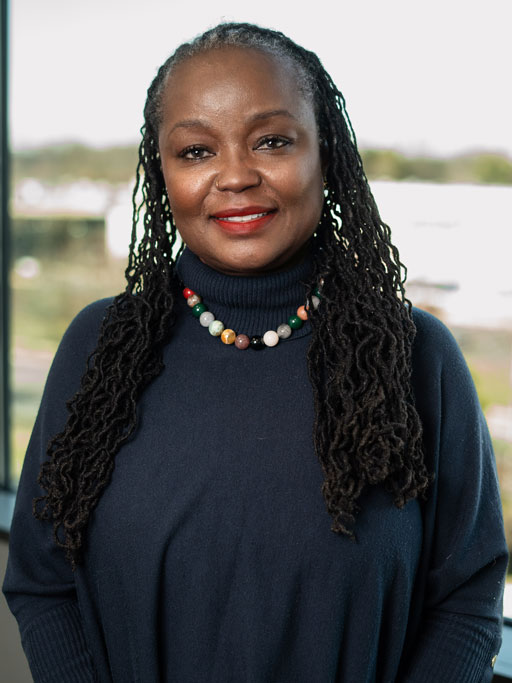While sexual health and wellness are important for all, factors such as stigma and a lack of cultural inclusivity can lead to disparities in sexual health for certain populations.

In 1999, Dedra Spears-Johnson and her best friend Sally Joseph noticed that Black women were neglected in efforts to combat HIV despite being disproportionately affected. This led them to found Heart to Hand, Inc., a community-based organization in Prince George’s County, Maryland.
Since then, Heart to Hand has infused sexual health care with love and culture, leading Prince George’s County in free and low-cost sexual health services. Dedra Spears-Johnson, who currently serves as the organization’s Executive Director, hopes to help transform the HIV landscape in Prince George’s County and in the state of Maryland as a whole.
Read the interview below to learn more about her passions and hopes for the future!
What inspired you to engage with this field and create Heart to Hand?
“We wanted to create a family type environment where people who were living with HIV would be able to come in and feel like they were welcomed without stigma – that they felt loved and that we could also provide them with resources. At the time, and even still now, there was so much stigma.
Particularly, for Black women, we know that they are the pillars of the community. If the mom is okay, or if the grandma is okay, then the family unit is more likely to be okay. And so we wanted to provide a safe place for Black women to come. And we had support groups so that those Black women who were impacted could come together and talk about their experiences.”
What are some of the most significant changes that you have noticed since Heart to Hand’s inception?
“Some things have changed and some things are definitely the same. There’s definitely still a lot of stigma, particularly for the Black community. But I do think that there is more support in terms of individuals who have found out their diagnosis. The HIV-positive community itself has a support system within that community and their allies around it. But people in the community at large feel like they’re not at risk until they or someone in their family is… I feel like people don’t see themselves as at risk until it becomes a part of their environment.
Before, Heart to Hand was really focused on a smaller community – the LGBTQ community was considered at risk. But now our perspective is sexual health, not just the HIV/STI focus. It’s a focus around helping people understand that they’re sexual beings, that they get to make decisions about their sexual preferences…[we help] people understand that sex is not something that just happens to you. It’s something that you can be intentional about.”
What are your thoughts on the sexual health and HIV prevention landscape in the state of Maryland?
“I still think that we don’t have enough information or organizations working on it. It’s very limited. Maryland passed a bill a few years ago where HIV testing should be normalized as a part of your blood labs – a lot of doctors don’t know about that. So just getting information to healthcare providers where people are normalizing HIV as a part of your overall healthcare [is important]. I think that we’re moving in that direction by passing that legislation. Now we have to continue moving in the direction by educating everyone.
We all need to come together and pool our resources to come up with a plan to be able to work together and to know that we’re not duplicating services. We’re all trying to do the same thing, but I think we work in silos. So I would like to see us work better together to end the epidemic.”
Name your favorite aspect of the work you do.
“I think it’s the people. We’re providing services for the people, and we have staff at work here – we’re teaching them and they’re teaching me. It’s the interaction and engagement with my staff who are all different ages, then it’s the clients and their stories – seeing people in one part of the continuum move into being happy and standing on their own and empowered just in general. It’s definitely the people.”
What are some things you hope to see in the future?
“I think I would like to see the greater community get involved. We work with our clients within our environment, but then we send them out into a community that’s not educated. We’re trying to figure out how to educate the greater community to help them understand how HIV is transmitted in a way that’s destigmatizing.
Then, it’s just trying to figure out how we make treatment more readily available in places where people are already receiving their healthcare.”
